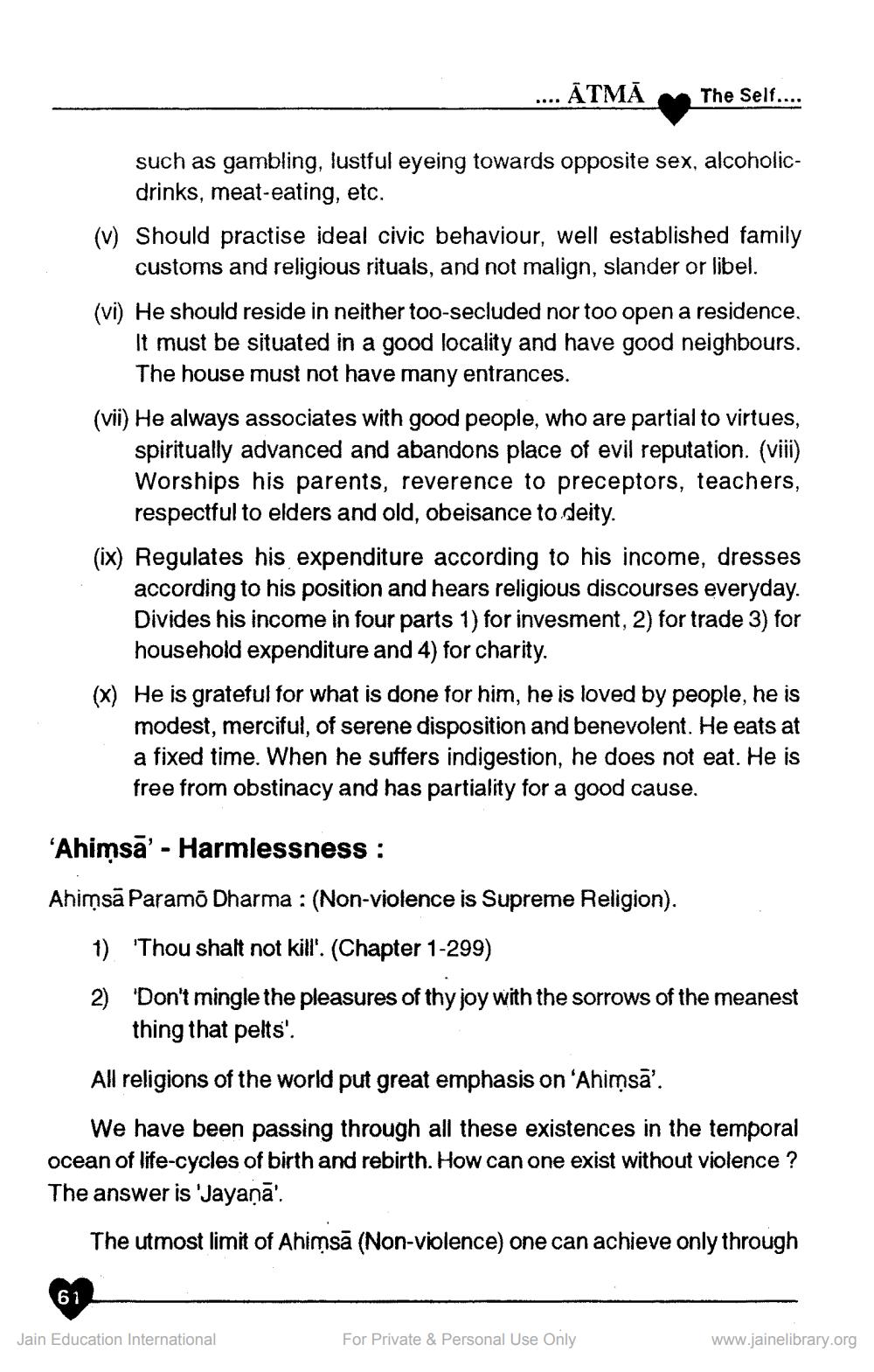________________
61
ĀTMĀ The Self....
such as gambling, lustful eyeing towards opposite sex, alcoholicdrinks, meat-eating, etc.
(v) Should practise ideal civic behaviour, well established family customs and religious rituals, and not malign, slander or libel.
(vi) He should reside in neither too-secluded nor too open a residence. It must be situated in a good locality and have good neighbours. The house must not have many entrances.
(vii) He always associates with good people, who are partial to virtues, spiritually advanced and abandons place of evil reputation. (viii) Worships his parents, reverence to preceptors, teachers, respectful to elders and old, obeisance to deity.
(ix) Regulates his expenditure according to his income, dresses according to his position and hears religious discourses everyday. Divides his income in four parts 1) for invesment, 2) for trade 3) for household expenditure and 4) for charity.
(x) He is grateful for what is done for him, he is loved by people, he is modest, merciful, of serene disposition and benevolent. He eats at a fixed time. When he suffers indigestion, he does not eat. He is free from obstinacy and has partiality for a good cause.
'Ahimsa' - Harmlessness:
Ahimsa Paramō Dharma : (Non-violence is Supreme Religion).
1) 'Thou shalt not kill'. (Chapter 1-299)
2) 'Don't mingle the pleasures of thy joy with the sorrows of the meanest thing that pelts'.
All religions of the world put great emphasis on 'Ahimsa'.
We have been passing through all these existences in the temporal ocean of life-cycles of birth and rebirth. How can one exist without violence? The answer is 'Jayaṇā'.
The utmost limit of Ahimsā (Non-violence) one can achieve only through
Jain Education International
For Private & Personal Use Only
www.jainelibrary.org




